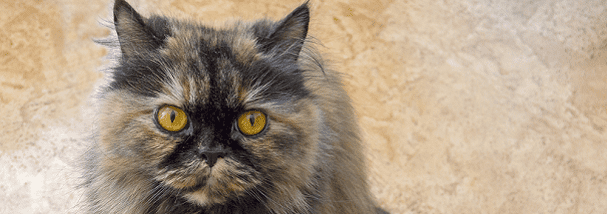 When they get old, many cats start to develop kidney disease. In some cases it is mild and does not cause significant problems, but in others it can be serious and really affect their quality of life. Chronic renal insufficiency can also be known as Chronic Kidney Disease, or CKD. It occurs when there is long-standing, irreversible damage to the kidneys. This is often a wear-and tear type of disease process but can also be as a result of other diseases such as infections.
When they get old, many cats start to develop kidney disease. In some cases it is mild and does not cause significant problems, but in others it can be serious and really affect their quality of life. Chronic renal insufficiency can also be known as Chronic Kidney Disease, or CKD. It occurs when there is long-standing, irreversible damage to the kidneys. This is often a wear-and tear type of disease process but can also be as a result of other diseases such as infections.
The kidney has many functions including excreting the waste products of metabolism, such as urea and phosphorus, regulating the amount of water in the body, stimulating red blood cell production, maintaining blood pressure and activating vitamins.
Signs to look out for…
The most obvious symptom of the condition is an increase in the amount of water your cat drinks, however this can be a gradual change over a number of weeks or even months. Cats can often start drinking water from very unusual places, such as from the toilet or from puddles! There are many other conditions which can also cause your pet to increase the amount of water he or she drinks, so it is important the have regular veterinary checks to rule these out. Other signs include weight loss, halitosis (bad breath), inflammation of the intestines and weakness.
If you suspect your pet has CKD
The most important first step in diagnosis is for us to look at a urine sample, which enables us to check how well the kidneys are concentrating urine. We will also have a feel of your cat's kidneys to see if they are a normal size, or are small, which is common with CKD, and check blood pressure. Taking a small blood sample is another quick and easy way to check how well the kidneys are functioning.
Management of CKD
Unfortunately CKD is a progressive disease, but with good supportive treatment we can slow the progression of the condition and keep your pet healthy for many years. Increasing the amount of water your cat consumes will help the kidneys to function. This can be provided by changing the diet to wet food, or offering more water bowls around the house. Changing your cat's diet to a prescription renal diet will ensure they live much longer and other daily medications can help regulate blood flow to the kidneys and normalise blood pressure.
We like to check our patients with CKD regularly to monitor how well their kidneys are functioning and ensure that our patients with CKD have the best quality of life for as long as possible, so we may take urine and blood samples during regular check ups in the clinic.
If you have any questions about Chronic Kidney Disease or if you are worried your cat may be drinking more than usual please feel free to call us or come to the clinic for some advice.
www.fabcats.org also has lots of useful information on CKD.


